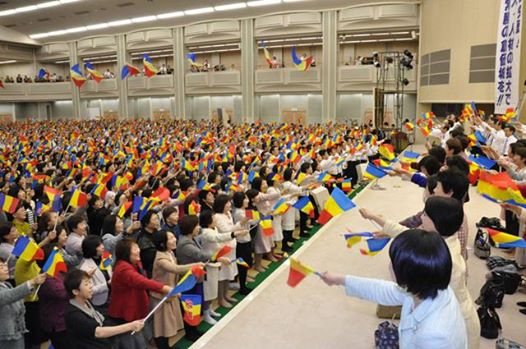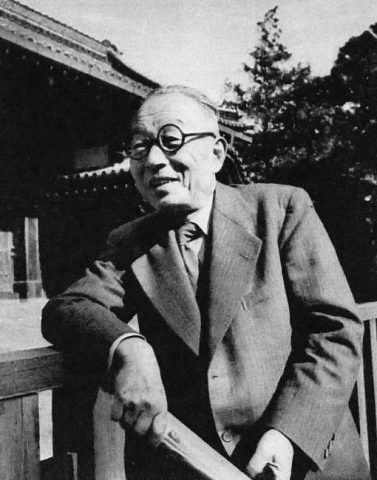Veranstaltungen und Aktivitäten
Japanese studies as an occupation: Career planning for Early Career Researchers in theory and practice (A lecture and practical exercise)
Navigating an international research career is a potentially hazardous journey, with many unforeseen challenges and pitfalls to be faced. Japanese Studies like all Area Studies necessarily invites such challenges, as scholars will almost certainly spend long periods on sojourn in radically different scholarly environments. One challenge is to know about and act on institutional expectations and norms with the intention of securing and improving employment opportunities. This is particularly important for early career researchers (ECRs) who may spend long periods on field work or in junior employment in Asia. Moreover, although academics generally insist on evidence based scholarship in their fields of interest, they may rely on personal experience, institutional norms, and hearsay as guides when making decisions in their own organizations. Naturally the decisions that both ECRs and employers make in their respective roles will, in the absence of systematic empirical evidence, be strongly subject to heuristic biases. This research will present quantitative and qualitative evidence from the UK and Japan to inform both ECRs of the potential pitfalls in navigating an international career in academia, and employers in making more informed decisions on hiring junior scholars. It will be followed by a short workshop for participants to support them in working on their own, evidence based, career development planning.
This is a special joint workshop session organized by the DIJ History and Humanities Study Group and the Social Science Study Group designed to encourage conversation among early career scholars.
Speaker:
Peter Matanle, University of Sheffield
Sexuality among Marital and Extra-Marital Couple Relationships in Contemporary Japan
This presentation focuses on the discourses in contemporary Japanese popular media and in the recent Japanese academic literature revolving around sexless (hetero-sexual) couple relationships and extra-marital affairs from 2000 to 2017. In addition, this presentation draws from an interview research conducted with 45 Japanese men and women in their 20s to 40s. The aim of this study is to clarify the transformation and the characteristics of the Japanese sexless phenomenon in conjunction with the rise of extra-marital affairs, by demonstrating how the meaning of sexuality (and its lived behavior) in extra-marital affairs diverges from the social expectations on sexuality within couple relationships.
Speaker:
Alice Pacher, Meiji University
Kōmeitō and Sōka Gakkai’s Transforming Relationship: How Changes in Politics and Religion Affect Japan Today
 Going by statistical measures, Japan is reportedly one of the least religious countries in the world. It is thus striking to observe the seemingly disproportionate impact of religious organizations on Japanese elections, legislation, and policymaking. The most powerful of these groups is Sōka Gakkai, a Buddhism-based lay association whose millions of adherents treat electioneering on behalf of its affiliated political party Kōmeitō (Clean Government Party) as a component of their religious practice. Since its founding in 1964, and particularly since it partnered with the Liberal Democratic Party (LDP) in 1999 in the governing coalition, Kōmeitō has exerted a decisive political influence. And, while the party’s representatives consistently promote Kōmeitō as a brake on LDP efforts toward remilitarizing Japan and revising the 1947 Constitution’s peace clause (Article 9), Kōmeitō has reversed its stance on security issues – a move away from its founding pacifism that has alienated some of its Gakkai supporters.
Going by statistical measures, Japan is reportedly one of the least religious countries in the world. It is thus striking to observe the seemingly disproportionate impact of religious organizations on Japanese elections, legislation, and policymaking. The most powerful of these groups is Sōka Gakkai, a Buddhism-based lay association whose millions of adherents treat electioneering on behalf of its affiliated political party Kōmeitō (Clean Government Party) as a component of their religious practice. Since its founding in 1964, and particularly since it partnered with the Liberal Democratic Party (LDP) in 1999 in the governing coalition, Kōmeitō has exerted a decisive political influence. And, while the party’s representatives consistently promote Kōmeitō as a brake on LDP efforts toward remilitarizing Japan and revising the 1947 Constitution’s peace clause (Article 9), Kōmeitō has reversed its stance on security issues – a move away from its founding pacifism that has alienated some of its Gakkai supporters.
This panel brings together researchers who work from within and outside Kōmeitō and Sōka Gakkai. They will suggest reasons why Sōka Gakkai grew into a political powerhouse; how the party and religion interact in the present; what insights drawn from elections data, archival sources, and ethnographic engagement tell us about where Sōka Gakkai and Kōmeitō may be headed in the near future; and how changes now unfolding within Japan’s politics/religion relations may affect constitutional amendment efforts.
Speakers:
Asayama Taichi, Ritsumeikan University
Axel Klein, University Duisburg-Essen
Levi McLaughlin, North Carolina State University
Scientific Advice in Environmental Politics: A Comparative Study of Japanese Policy-Making
The integration of scientific advice in environmental policy processes is more than ever of great importance: ‘Science translators, ‘knowledge broker’, or ‘intermediaries’ theoretically facilitate the relationship between science and policy (Nowotny, 1993; Litfin, 1994; Young & Osherenko, 1993). However, the manner and degree to which scientific advice is integrated in the policy process differs markedly between countries, and scholarship has yet to fully describe the role of such actors.
This study looks at how scientific advice is integrated in the policy-making process in Japan in comparative perspective by hypothesizing that the degree of such integration, and the provenance of intermediaries acting as knowledge transmitters can explain the problem of lacking independent scientific advice.
Speaker:
Manuela Hartwig, University of Tsukuba
Impact of shareholder-value pursuit on labor policies of large companies listed in the Nikkei 400
Kostiantyn Ovsiannikov from the University of Tsukuba will discuss how the pursuit of shareholder-value by management has affected labor policies at large enterprises listed in the Nikkei 400 index. He will focus on the issue of labor bifurcation, which refers to the division between regular and nonregular employees. The share of nonregular employees in Japan has been growing rapidly and is now close to 40% of all employees.
The research corroborates the positive correlation between total shareholder return and the share of nonregular workers in a firm. Moreover, it shows that foreign stockholding is not correlated with an increase in nonregular employment.
The presentation is based on a paper, which received the 2018 FFJ (Fondation France-Japon)/SASE Best Paper Award and which will soon be published in The Japanese Political Economy.
Speaker:
Kostiantyn Ovsiannikov, University of Tsukuba
Fūdo 風土: From Ordinary Term to Philosophical Concept

One of the most important and least well-understood notions in Watsuji Tetsurō’s philosophical oeuvre is the concept of fūdo 風土. The aim of this talk is to provide an explanatory overview of this concept, including a summary of its history and usage. This task is made more difficult by the complexity, richness, and philosophical novelty of this notion, on the one hand, and by Watsuji’s own piecemeal, inconsistent, and ambiguously formulated presentation of it, on the other. These factors have led to an array of conflicting interpretations concerning the scope and nature of this concept. The difficulties of understanding have been further compounded by the widespread use of the word climate to translate fūdo into English, which is a misleading simplification that does not reflect the complex meaning that Watsuji attributed to this term. For this reason, I elect to leave this term untranslated.
Speaker:
David W. Johnson, Boston College
Picture: Public Domain | wikimedia
The Value and Meaning of a “Useless” Robot: An Ethnographic Study of Japanese Communication Robots

Although Japan has been at the forefront of the technological imagination of human-like robots for decades, a major turning point came with the release of Softbank’s Pepper in 2015. Marketed as “the world’s first robot that stays close to people,” Pepper quickly entered the public eye and everyday experience of those living in large Japanese cities. Between 2015 and 2016 alone, the variety and number of such communication robots—a fluid subcategory of service robots designed to enrich or enhance human communication—doubled. Yet users found that the capabilities of these robots were nowhere near the human-like entities that they had seen in popular media and anticipated for so long.
Through unpacking the paradox of an “useless” robot, my dissertation investigates how these technological objects and society affect one another.
Speaker:
Keiko Nishimura, University of North Carolina at Chapel Hill
Market Reactions to Downsizing Announcements – the Role of Strategy and Knowledge Intensity
Japanese firms are generally less likely to execute radical downsizing measures. Confronted with legal and societal restrictions to lay off large numbers of employees, they implemented several adaptive downsizing strategies, such as early/voluntary retirement, transfers to subsidiaries (Shukkō/Tenseki), hiring freezes, lay-offs of non-regular employees, and wage-cuts. To get a more nuanced understanding of these adaptive strategies, I collected a unique dataset on corporate downsizing actions from the Nihon Keizai Shimbun (Japan’s premier business newspaper) for the time period 2007-2009.
Building on the resource-based view of the firm, I study how these strategic choices affect the likelihood of losing critical organizational knowledge and in turn, how these strategies affect investor response to downsizing announcements. Further, I show that investor response to downsizing strategies is highly contingent on the knowledge intensity of the firm.
Speaker:
Daniel Ehnes, Goethe University Frankfurt





 Open Access
Open Access 
